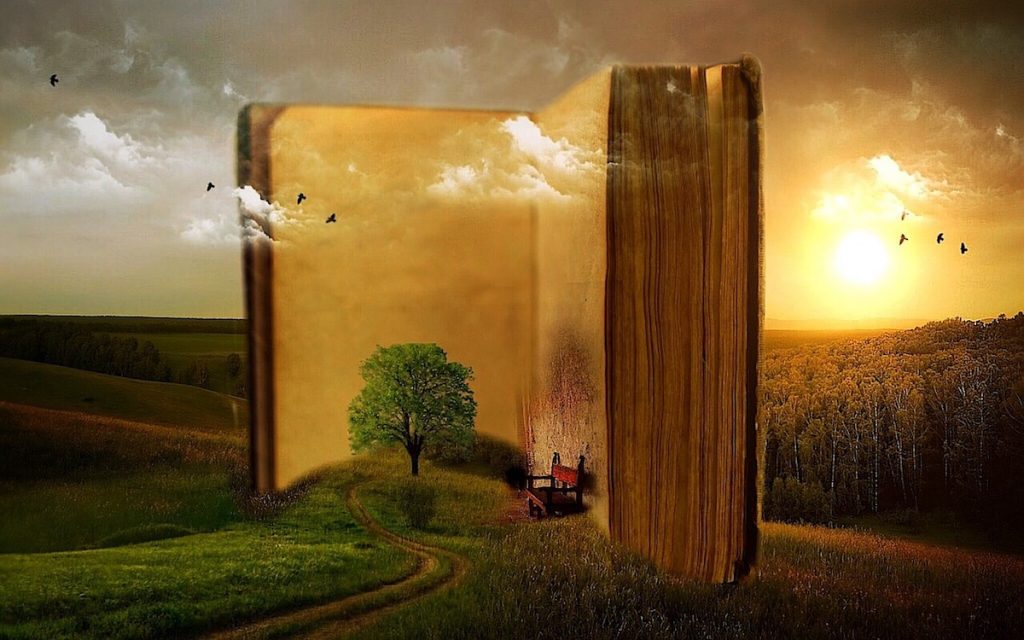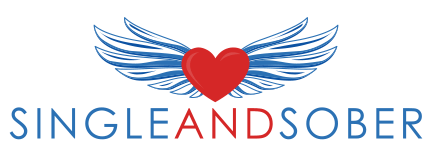
Check out this addiction recovery literature list!
In my last post, I shared a number of books about addiction and recovery. It is difficult to cover such a growing and important genre of writing in one post so, I’m back!
In the area of “How To”, there are a number of notable books worth reading if you or someone you care about wants to get and stay sober.
- Refuge Recovery by Noah Levine. Levine is the well known author of a number of books including Dharma Punx in which he shared his own struggles with substance abuse and the role of Buddhism in both his sobriety and the path to a mindful life. In Refuge Recovery, Levine creates a program of recovery for folks struggling with addiction. In the book, Levine adapts the Buddha’s Four Noble Truths and Eight Fold Path into a systemic approach to recovery from alcohol and drug addiction. “We must do away with any shred of denial, minimization, justification, or rationalization. To recover, we must completely and totally understand and accept the truth that addiction creates suffering.” ~ Noah Levine from Refuge Recovery.
- Unhooked: How to Quit Anything by Susan Shapiro (http://www.susanshapiro.net/) and Frederick Woolverton differs from other self-help addiction books in that it is written by an addiction specialist of 30 years (who smoked for 2 decades and had a mother who was a raging alcoholic his whole life) in collaboration with his patient (Shapiro) who he helped quit cigarettes, alcohol and drugs 15 years ago. Shapiro shared with me, “the book talks about addiction in the big picture, showing how you can get addicted to anything. We cover case studies of people who quit smoking, drinking, pot, pills, heroin and cocaine, as well the dangers of overexercising, excessive shopping, internet porn, tattoos and piercings, even over-doing religion and charity. As Dr. Woolverton says “Beware any excitement because it takes you out of yourself and you always have to go back to yourself.” “Shapiro continued, “He helped me realize that every single addict is different and needs a different approach. Also how sometimes in order to quit you need an all-out assault. To quit my 27-year nicotine habit for example, I needed the nicotine patch, twice a week psycho-therapy and had to completely change my social life to avoid smokers and drinkers. He found that people who do one-on-one addiction therapy along with going to AA-type meetings stand a better chance of quitting. We also chronicle how common relapses are, how to help a loved one trying to quit and how to ensure you’ll be clean and sober forever.”
- This Naked Mind by Annie Grace is a unique exploration into the “why” we drink. Ms. Grace did significant research into the neurology, psychology, and cultural influences of drinking. In seeking a solution to her almost 2 bottles of wine a night drinking habit, Grace uncovers the myth that alcohol equals happiness and discovers the true route to happiness is freedom from addiction. Grace shared with me, “I was motivated to create the course and write the book because of my own journey through alcohol addiction. Although I never experienced a rock-bottom I was deeply conflicted about my drinking. I realized that I had two voices in my head – and both wanted to do more and less of something (drink) at the same time. Some other work with Dr. John Sarno (an expert on back pain and the subconscious mind) led me to the realization that although I consciously wanted to drink less I had deep subconscious conditioning that I needed alcohol. I believed it was vital for enjoyment and stress reduction alike. I realized that if I could change this programing which came from years of influence from society, my peers and family and my own experience, I would be able to end the internal conflict. No longer desiring something I knew was harmful for me.” Grace continued, “I embarked on a year long journey of research into alcohol, neurology and addiction and subconscious conditioning. Through the year I journaled and at the end I found that the grip alcohol had on me – through extensive knowledge and research – had gone away. I only had one voice in my head – the voice that knew alcohol was harming my health and wellbeing. The struggle had ended and I was able to see alcohol as it truly is – not a friend that I needed but an enemy that would ensnare me by continuously creating a physical and psychological need for itself. Knowing that I had something special I took my journals and wrote the book This Naked Mind.”
In the area of “Memoirs”, there are a number of outstanding offerings.
- Addicted: Notes from the Belly of the Beast is a collection of shorter pieces by a variety of writers including Patrick Lane (http://www.patricklane.ca/). These are brutally honest accounts of the toll addiction has had on a number of well known writers. Not all those in the book return from the belly of the beast and those that do are forever transformed. The reader is not left unmoved by this collection. Lane told me, “I have helped bury drunks and addicts, stood and watched as their bodies were pushed into furnaces, and, yes, stepped over an alcoholic’s body in a flop off Avenue C back in the Sixties. They are the dead that I am not. The withered beast in my belly sleeps, but still could wake with a drink. The men and women in this book breathe at times to the rhythms of ancient addictions, their many lives. Let all like me with grace wake clear and clean each morning singing.”
- Sober Stick Figure by Amber Tozer offers a unique type of storytelling. Tozer is a comic and her humor amidst the tragedy of her experiences as told in this memoir, creates a different type of recovery memoir. Tozer illustrates the book with stick figures that depict her experiences as a child of an alcoholic and her eventual evolution into an alcoholic herself. Tozer’s humor infuses the book yet does not minimize the painful reality of her life almost ruined by alcohol. I got a chance to ask Tozer a few questions. I asked her why she choose to use stick figure images in the text. “I was brainstorming with my agent and he thought an illustrated book about alcoholism would be interesting. I told him I could maybe draw a stick figure, and bam, Sober Stick Figure was born. We thought it would be funny to have simple little stick figures coupled with a heavy topic. At first, I thought I’d draw a couple little cartoons per chapter but I got obsessed with them and there ended up being one illustration on almost every page. They made me laugh because they were so poorly drawn. I wanted the stick figures to shed some light on a confusing and heavy topic, hopefully I achieved that.” I asked Tozer if humor is an integral part of her recovery as her memoir, though it addresses a “heavy” topic is often, funny. Tozer responded, “Before I wrote Sober Stick Figure, I thought a lot about other people’s addiction memoirs and thought “I’ve never even tried heroin! I didn’t have sex with strangers because strangers are very scary and most of them are disgusting. My story isn’t wild enough! I better go back out there and go crazy so I have something crazy to write about! People love crazy stuff!” But, then I just ignored my thoughts and started writing and focused on being honest, and I tried to sneak in punchlines whenever I could. I really love writing jokes so to answer your question about humor – yes it has been a big tool in my recovery. Laughing my way to hell and back really keeps me thriving. I find a lot recovering alcoholics to be hilarious. We tell the truth and it’s sometimes really, really funny. Alcoholism isn’t funny, it’s effin’ horrible, but when you hit a sweet spot in sobriety where you have finally forgiven yourself (and others) you lighten up a bit and it’s fun to sling jokes about the former you.”
- The Night of the Gun by the late journalist David Carr is a brilliant investigative piece on his life as an alcoholic and addict. Carr utilized his skills as an investigative reporter to create a complete picture of his life as an active addict. Through his own personal recollections as well as interviews with those who knew him, Carr offers a balanced and objective view of what his own experience and the experiences of those around him were during his darkest time. This book is an important read both for the incredible writing as well as the inclusion of those affected by a loved one’s addiction. From The Night of the Gun: “Most of my stories are not nice ones, their heroic aspects dimmed by the fact that the hand which struck me was my own. Truly ennobling narratives describe a person overcoming the bad hand that fate has dealt him, not someone like me, who takes good cards and sets them on fire.”
- The Los Angeles Diaries: A Memoir by James Brown is a deeply disturbing yet strangely hopeful journal. Brown chronicles his traumatic upbringing and numerous tragedies that culminate in his dangerous substance addiction. Each chapter could stand alone yet work together to create the image of man almost broken. Though his book deals with such issues as suicide, divorce, arson, and addiction, Brown infuses the book with a dark humor that allows for the possibility of redemption from the depths of darkness. Brown shared about his relapses in both The Los Angeles Diaries and the brilliant follow up, This River Of relapse, Brown told me, “Relapse is heartbreaking for the alcoholic/addict and those who love them. Some of us ‘get it’ after our first stint in rehab, or our first AA or NA meeting and never take another drink or drug. Others, like myself, may slip along the way, but that’s absolutely no reason to stop trying, time and again, whatever it takes. The key is to never give up the hope that you can and will find freedom in sobriety.”
- Gun, Needle, Spoon by Patrick O’Neil (http://patrick-oneil.com/) is not for the faint of heart. O’Neil uses sparse prose to tell the story of his life as a heroin addict and criminal to support his and his girlfriend’s habit. His robberies lead him to incarceration and his incarceration leads him to a sort of sober redemption. This is a naked account of a life gone off the rails by a gifted writer who was once a central character in the punk scene. I asked O’Neil about his experience writing about this period of his life. “I had a ton of stories in my head from events throughout my using and the incidences where the consequences of my addiction caught up with me. You know the kind one tells late at night when getting loaded, tales of woe and tragedy, and I just had to get them down on paper. Mostly they were stories that no one would believe, of course I had to remove the embellished parts that evolved from the retelling, but here was my opportunity to explain what really happened. Not the glamorous lies that my addict brain wanted you all to believe, but the dark emotional reality that being an addict entails.” As to the effect of writing, O’Neil continued, “There’s a certain cathartic relief in confession and much like the therapeutic payoff of working the 12 Steps, identifying and admitting my role in destroying my life (as well as reclaiming it) afforded me the ability to move on, where before I was stuck in the past. I had memories that were constantly haunting me, and after I wrote about them I was able to come to a place of acceptance and self-forgiveness.”
- Blackout : Remembering the Things I Drank to Forget by Sarah Hepola (http://sarahhepola.com/) is a painfully and poignantly honest account of a life taken over by alcohol. “Alcoholic blackouts” can be one of the most frightening aspects of alcoholism. It is as if a portion of one’s life is lived in secret even from the self. Hepola openly recounts this time in her life with honesty that elicits fear in the reader. Hepola experiences frightening, dangerous consequences from her drinking but, for quite some time, is unable to stop the alcohol train that has gone off the tracks long ago. I asked Hepola about her early sobriety and the process of writing her book, “I was in a place of deep despair after I quit drinking. I thought everything good about life was over. Joy and emotional connection and erotic discovery. I was desperate to find something that would make sobriety tolerable, and the idea of writing a book — something I had wanted to do for years but never managed while I was drinking — presented itself as a reason to keep going. The further I got into sobriety, the better my life became, and the more that dead-end feeling was replaced by a profound sensation of opening up to the world. So I wanted the book to speak to that person in despair. It was like a message in a bottle to my former self.” Hepola continued, “On a purely practical level, the effect of writing the book was big, because it moved me into a category where I had wanted to be for a long time: A person who had written a book. But I think you’re asking about the emotional effect of writing it. It was a good way for me to figure out why I had been drinking so much and what the alcohol had been trying to fix. Writing can be a very powerful tool in the process of recovery. We have all these mythologies about ourselves, or stories that we’ve told without ever reflecting on them. The work of sobriety should be an attempt to peel back those layers and get to the truth of what really happened, which is what I was trying to do with the book. One of the things I love about having written a memoir like this is that I get the most amazing letters from people who have their own troubled past or present with alcohol. They tell me their stories, and I never get tired of hearing them. Stories are what helped pull me into 12-step programs in the first place.”
 Regina Walker is a writer, photographer and psychotherapist in NYC. Follow her on Twitter @ReginaAWalker.
Regina Walker is a writer, photographer and psychotherapist in NYC. Follow her on Twitter @ReginaAWalker.

